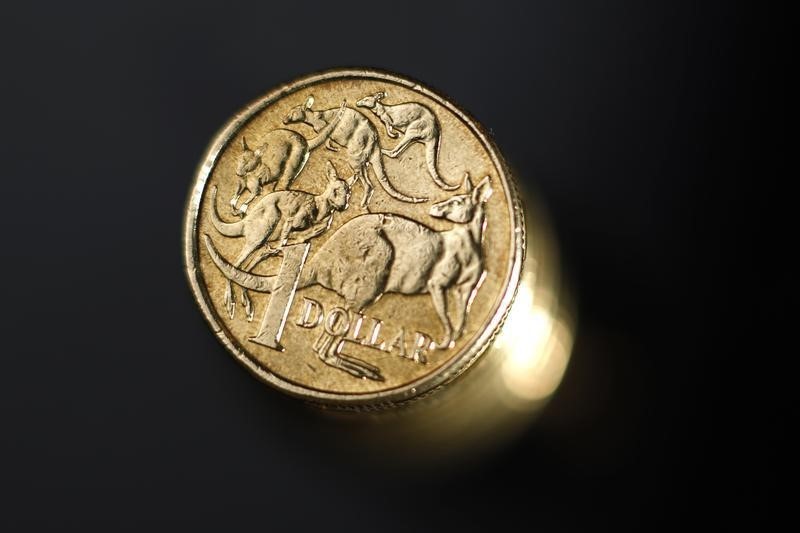SYDNEY/WELLINGTON, Oct 29 (Reuters) - The Australian and New Zealand dollars were bruised on Thursday after a hawkish sounding Federal Reserve revived speculation of a rate hike this year, boosting the U.S. dollar.
There was plenty of action on the kiwi front which last stood at $0.6684 NZD=D4 , nearly a cent lower from the start of Wednesday's session. Support was found around $0.6640.
It rebounded from a two-week trough of $0.6622 as some short positions were squeezed in the wake of a Reserve Bank of New Zealand policy (RBNZ) review.
As expected, the RBNZ kept interest rates steady at 2.75 percent following three rate cuts, but voiced concern about the rising New Zealand dollar.
Traders noted the central bank made no fresh attempt to talk down the currency and also gave no strong hint of an imminent rate cut, two factors that kiwi bears were counting on.
Yet, many analysts still suspect the RBNZ will deliver a fourth rate cut this year at its Dec. 10 meeting, unwinding all of last year's 100-basis-point hikes.
"If we are right about the way conditions are going to develop, the RBNZ would most likely cut the OCR in December, because of the high exchange rate," said Dominick Stephens, chief economist at Westpac in New Zealand.
The Antipodean currencies had skidded overnight after the Fed kept alive expectations that it might still raise interest rates by year-end.
The Australian dollar struggled near three-week lows at $0.7098, having dropped 1 percent on Wednesday. It has shed more than 2 cents this week, an outcome that will please the Reserve Bank of Australia (RBA).
The central bank holds its monthly policy meeting on Nov. 3 and forecasts are for a close call on whether it will resume cutting interest rates or stand pat.
Surprisingly soft domestic inflation data on Wednesday added to the case for an easing with interbank futures giving an around 50-50 chance of a move, from 25 percent earlier in the week. The probability rises to 80 percent for the December meeting.
"Next week's decision will be complicated, but we think a number of arguments against easing policy eventually will win out," said Stephen Walters, chief economist at JPMorgan (N:JPM).
Australian government bond futures were mixed, with the three-year bond contract down 1 tick to 98.240. The 10-year contract added half a tick to 97.4000, while the 20-year contract eased 3 ticks to 96.8150.
New Zealand government bonds eased, with yields 1.5 to 2 basis points higher along the curve. (Editing by Kim Coghill)
